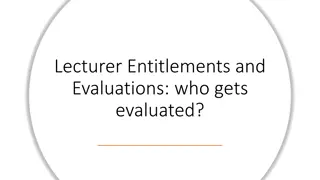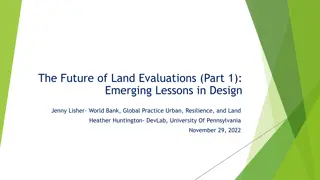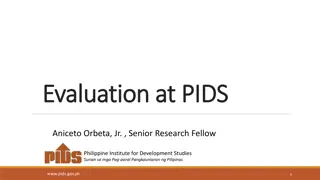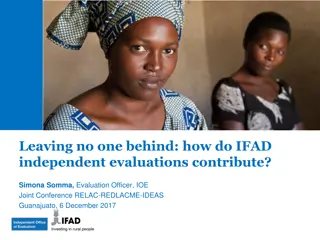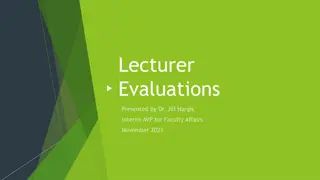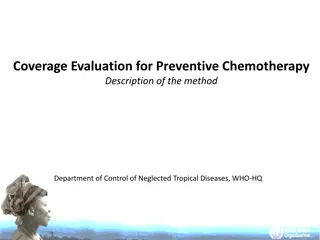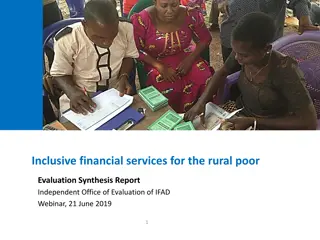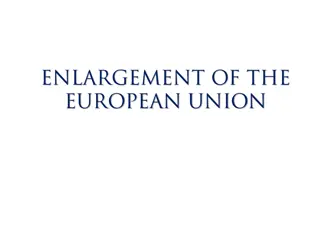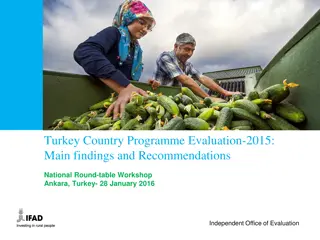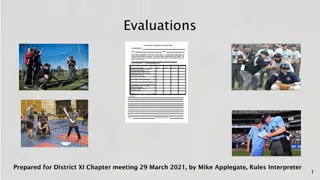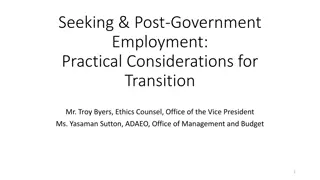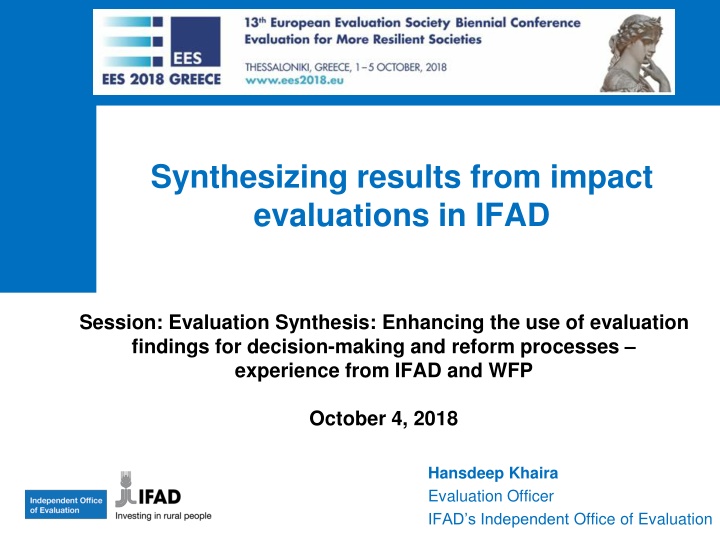
Enhancing Decision-making in Development Projects: IFAD Impact Evaluation Insights
Discover how IFAD leverages evaluation findings to enhance decision-making and reform processes in development projects. Explore the demand for impact assessment, IFAD's Country Strategy & Programme Evaluations, measuring impact criteria, synthesizing results, and evaluating impact practices.
Download Presentation

Please find below an Image/Link to download the presentation.
The content on the website is provided AS IS for your information and personal use only. It may not be sold, licensed, or shared on other websites without obtaining consent from the author. If you encounter any issues during the download, it is possible that the publisher has removed the file from their server.
You are allowed to download the files provided on this website for personal or commercial use, subject to the condition that they are used lawfully. All files are the property of their respective owners.
The content on the website is provided AS IS for your information and personal use only. It may not be sold, licensed, or shared on other websites without obtaining consent from the author.
E N D
Presentation Transcript
Synthesizing results from impact evaluations in IFAD Session: Evaluation Synthesis: Enhancing the use of evaluation findings for decision-making and reform processes experience from IFAD and WFP October 4, 2018 Hansdeep Khaira Evaluation Officer IFAD s Independent Office of Evaluation
The demand for impact assessment Corporate demand for assessing impact of development interventions in projects - Long-standing focus of the organization - Value for money proposition - SDGs - Availability of methodologies for more rigour The thrust on aggregating impact: the IFAD9 IAI
IFAD Country Strategy & Programme Evaluations (CSPE) Objective of CSPE - To assess the performance of all programmes in a country in a given period - To make recommendations for future programmes Methodology - Assessing the performance of lending and non-lending activities according to OECD DAC criteria - Reviewing individual projects and aggregating the results at a programmatic level
The impact criterion Measuring impact in IFAD-supported development projects - The rural poverty impact criterion: Income and assets Agriculture productivity and food security Human and social capital and empowerment Institutions and policies - Indicators/variables - Methods
Synthesizing impact Intuition is to aggregate impact: poverty, beneficiary numbers. - Aggregate indicator v/s project specific indicators Source: IFAD (EB 2016/117/R.8/Rev.1) - Methods (attribution and contribution; varying gradients of rigour; quantitative and qualitative) - Contamination/confounding bias
Evaluating impact: practice Synthesize Focus on causal pathways tracing investment to results Use a thematic approach
Discussion point Aggregation vs Synthesis: the audience s perspective



